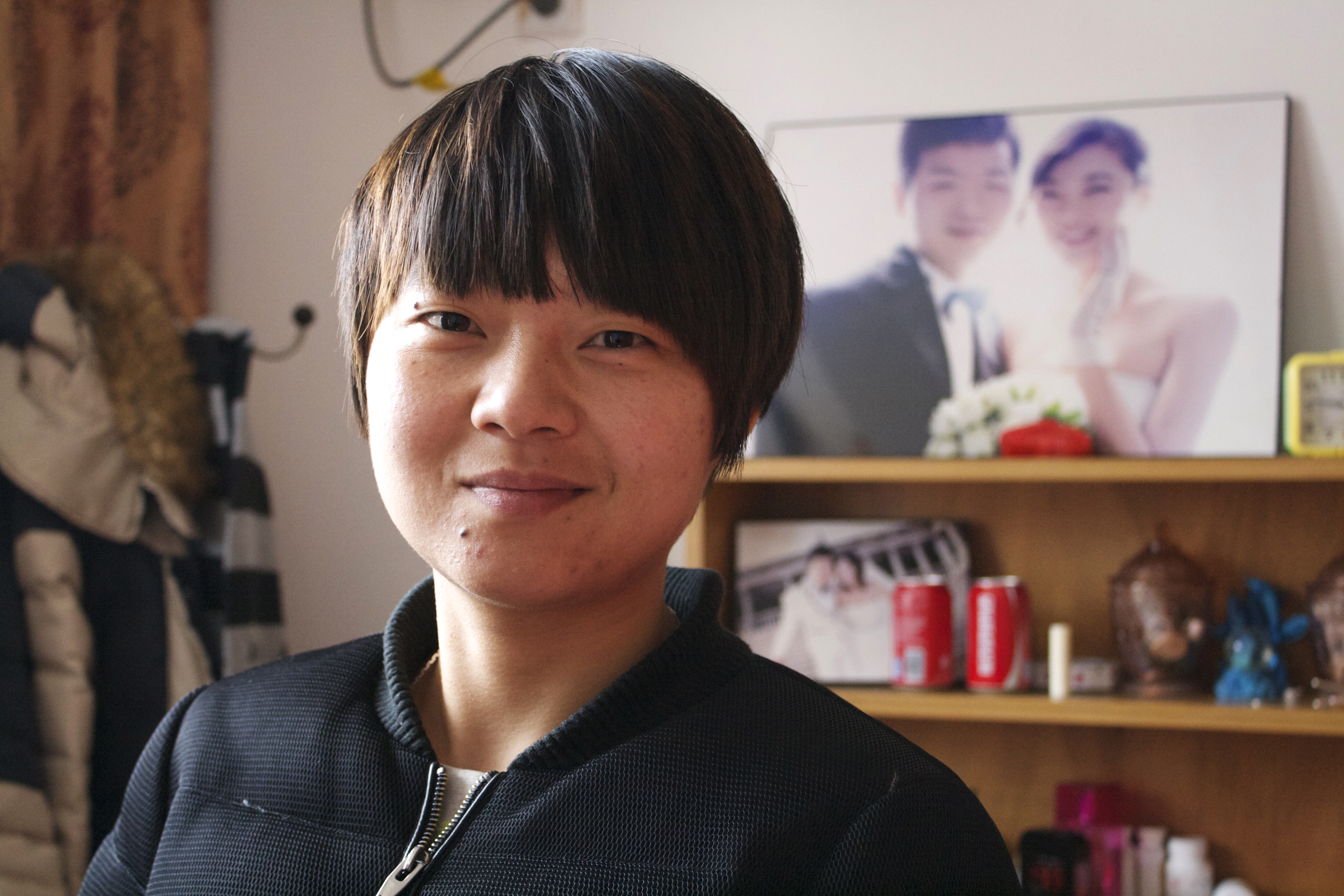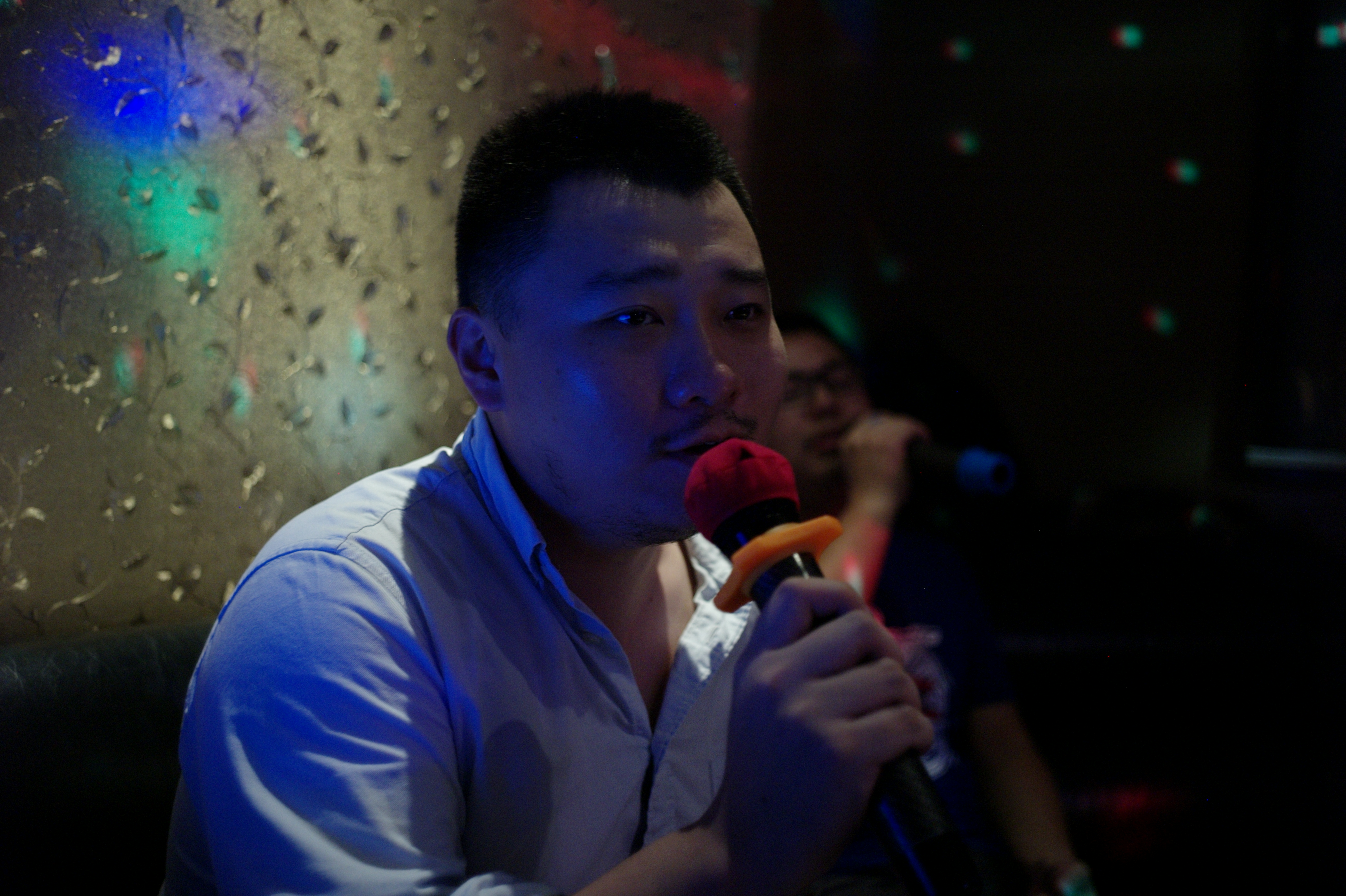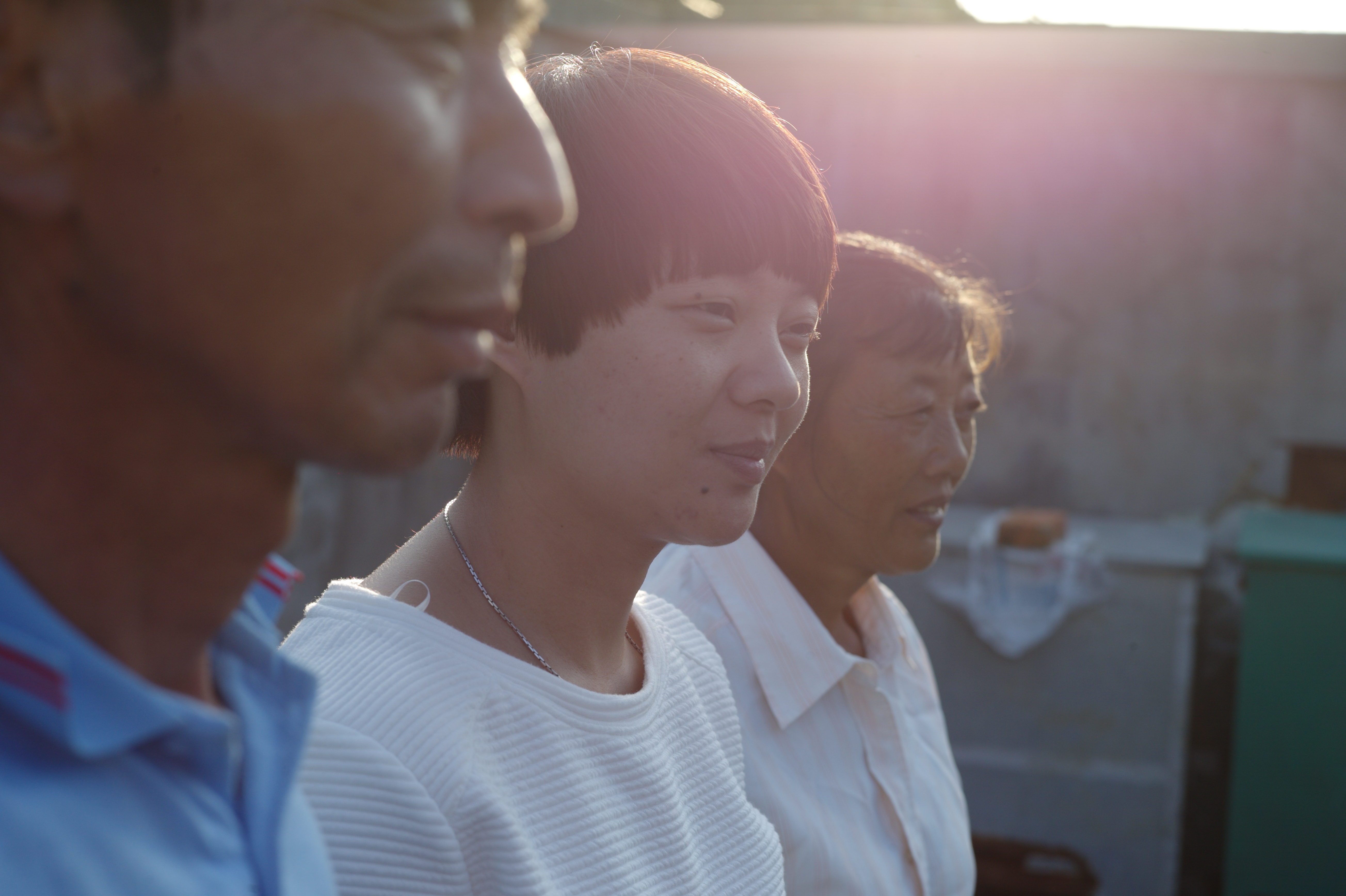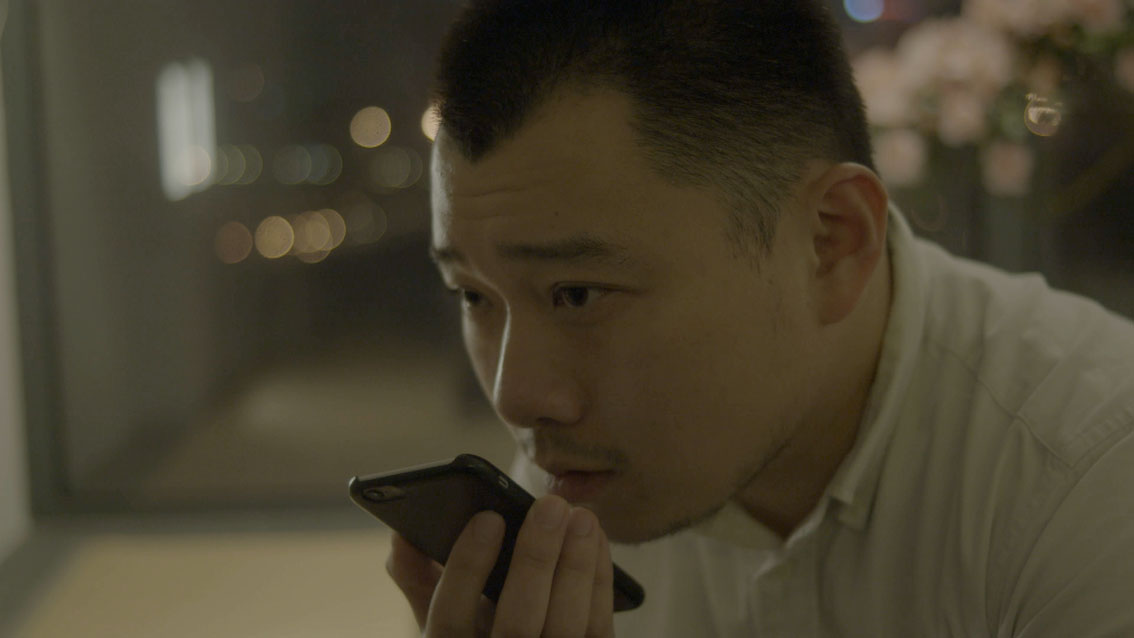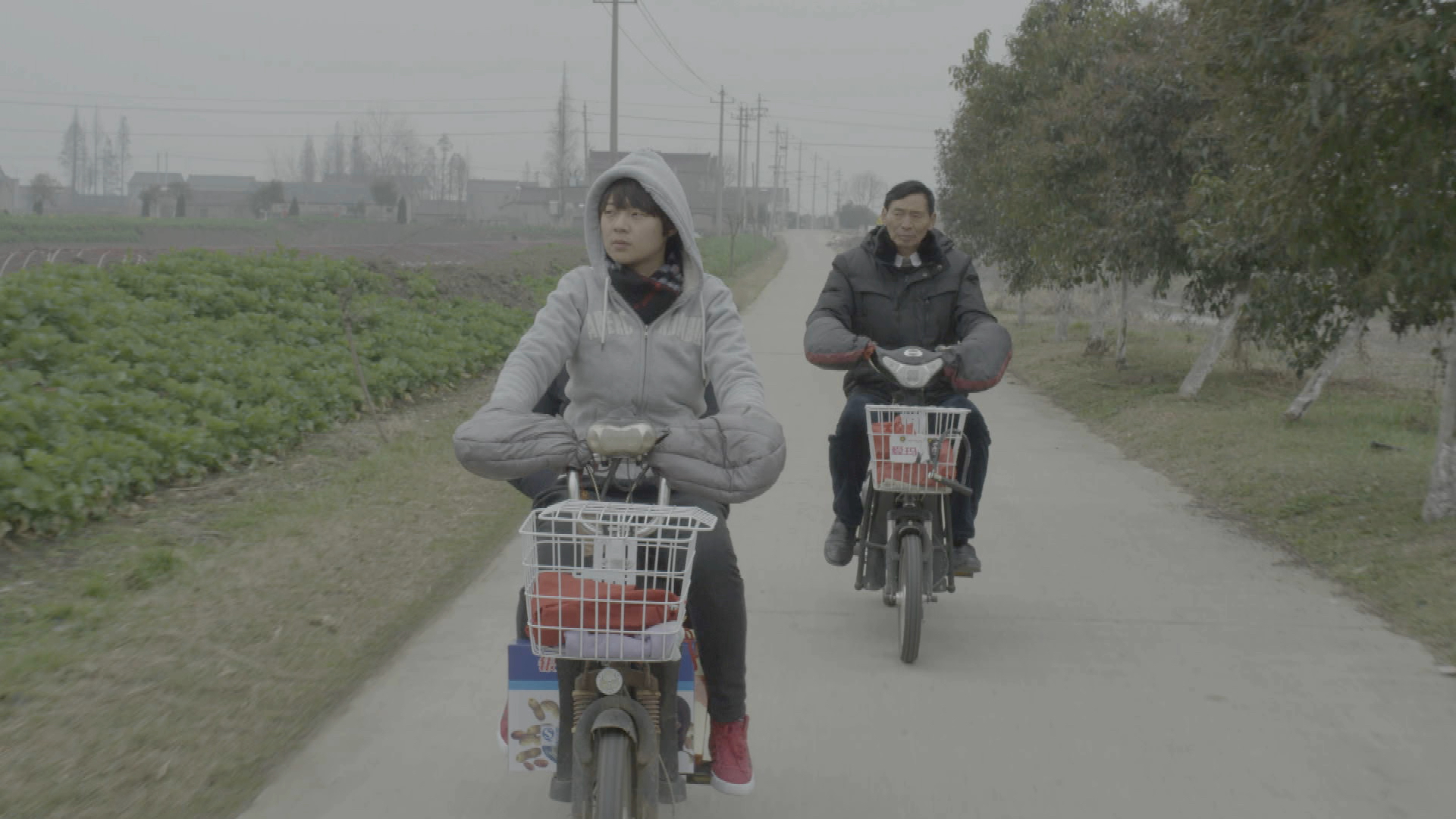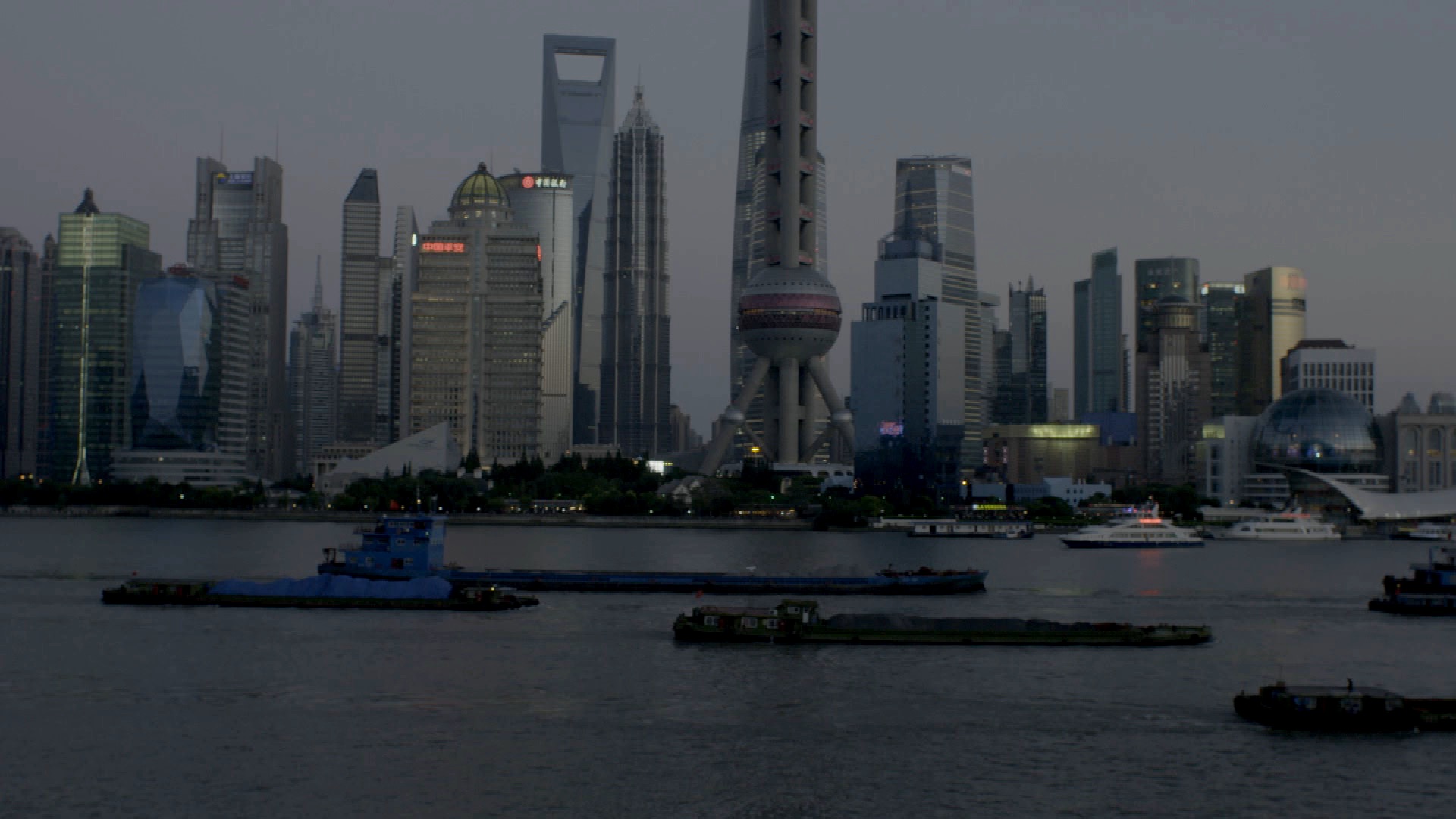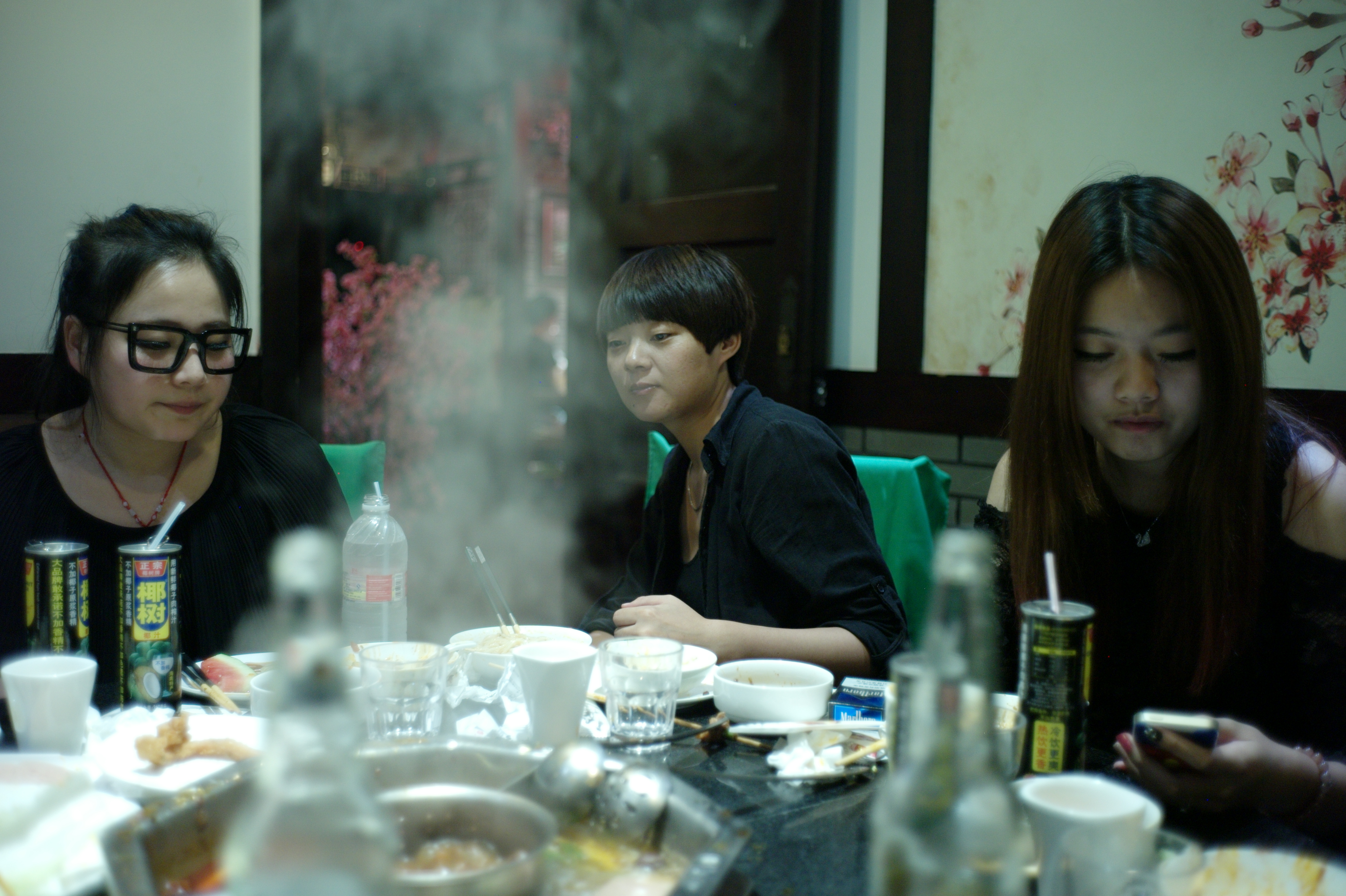“So your father still hasn’t accepted it – he went into the closet when you came out of it.”
A young bride and groom posing for a wedding shoot, all smiles under a cloudy Shanghai sky. To passers-by, they’re just another happy couple. In reality, their marriage is part of a rising trend that is anything but normal.
This is a scene from Inside the Chinese Closet, a documentary by filmmaker Sophia Luvara, recently screened at the Human Rights Watch Film Festival in London, United Kingdom. It’s a portrait of gay men and women desperate to fulfill parental and social expectations. So desperate, in fact, that they marry each other in fake heterosexual weddings, known as “xinghun“.
“Fake marriage is really common in China,” Sophia Luvara told the IPF. “There are also fake wedding markets and websites for lesbian and gay people looking for fake marriages.”
There are around 20 million gay or bisexual men in China, according to experts from Qingdao University Medical School. Around 80% of them are married to straight woman. Now, xinghun is becoming a more appealing alternative to young LGBT men and women.
While homosexuality was legalised in 1997 and declassified as a mental illness in 2001, LGBT Chinese men and women still face significant hurdles in every day life. Just this month, homosexuality was banned from being portrayed on television by the Chinese government.
“Most LGBT people do it for their parents. For them, it’s a major issue to lose face in front of the family.”
For Sophia, learning about the realities of life as an LGBT person in China provided a complex insight into relationships between conservative parents and their children.
“When I first saw the fake marriage fairs for myself, I thought it was bizarre,” she adds. “But I slowly realized the issue is more complicated than I first thought. Most LGBT people do it for their parents. For them, it’s a major issue to lose face in front of the family.”
Her film, Inside the Chinese Closet follows two main characters, Andy and Cherry, who are each looking to find a partner to marry in a xinghun arrangement. Here, she discusses her experiences filming in China with the IPF, providing some insight on the obstacles LGBT people there still face.
“Sometimes people are looking for just a ‘formality’ wedding… Some want to have a baby through artificial insemination.”
What led you to make a film about LGBT issues in China?
Some friends of mine took me to gay clubs in Shanghai. Being from Europe, I had this idea that China was a place where you’re not allowed to be gay. Then the story of widespread arranged marriages between gays and lesbians on a massive scale came up, and I was interested immediately.
You visited a few fake marriage fairs. Can you tell us about how they work?
Sometimes people are looking for just a ‘formality’ wedding, or it could also be a matter of just getting a fake certificate. In these cases, they don’t get legally married. Some go to these fairs looking for people who they can share a life with. Some want to have a baby through artificial insemination. There are many different degrees of commitment they could be looking for. But when they go to these events, they’re usually very straightforward and each one of them says exactly what they want. It’s very pragmatic, and the match sometimes works out pretty well.
Why do you think they enter into these arrangements?
Having a grandchild is really important to them, mainly because of the one child policy in China, which created a single children generation. For their parents, this is the only way they can give them a grandchild, and carry on the family name. On top of that, there are financial motives. In China, the pension system doesn’t work very well, so usually the child takes care of the parents when they grow old. For them, it makes a lot of sense to have a grandchild who will look after them later in life.
“The search for a grandchild is very much the core of the whole fake marriage process.”
Are there any particular moments in Inside the Chinese Closet that left you feeling emotional?
There are a few. With Andy, it was the conversations over the phone with his father. Sometimes it was quite tricky because the father had no idea we were filming. I felt a little guilty. With Cherry, the parents didn’t know what we were filming. They thought we were making a documentary about shrimp farming. They were trying to make me film shrimps and I was like, let’s talk about babies! It was Cherry’s idea. We did whatever she wanted to do, but you always feel guilty.
What do you think the Chinese government is trying to achieve by banning all depictions of gay people?
Nobody really knows why. The Chinese government made it legal to be gay. It’s not labelled as a mental illness anymore, so on one hand they seem really open-minded. There are gay clubs, and even Shanghai Pride. At the same time, it’s really restricted and controlled. For instance, gay pride can happen– but only behind closed doors.
Sometimes activists organise the screening of a film and the government gives permission, but half an hour before the film is screened, the lights of the building go off suddenly and for no reason. They’re trying to give an idea to the West that they are open-minded and forward thinking, but at the same time they want to keep order in society.
“A lot of people still think that being gay is an illness brought from the West.”
It must be so confusing for gay activists, because being homosexual is legal in China but they have to figure out what they can and can’t do.
Yes, even for them. When you ask them, they don’t know why the state banned a TV show. Nobody has an answer for that. What it does, is leave people in ignorance. A lot of people still think that being gay is an illness brought from the West. This is a common idea about homosexuality, because the state isn’t doing anything to promote more explanation.
“They do suffer a lot… I even met people who thought they were the only gay person in the world.”
Did you meet anyone in China who was being treated as if they were mentally ill?
Yes, we went to a clinic to film undercover footage because there are many clinics that claim they can cure you from being gay. They charge a lot of money for sessions where they talk to you and explain what you have to do to become straight again. In certain cases, they give you medicine and electric shock therapy. That’s a problem that isn’t going away any time soon.
I met many young people who went to live in Shanghai after having very tough lives in small villages in the countryside. I even met people who thought they were the only gay person in the world.
There are certain stories that really make you think, why is the government not doing anything? Even showing it on television would be enough to show people that this is happening in the world, and that it’s normal.
So you filmed everything for Inside the Chinese Closet undercover?
Yes, we went there with tourist visas and we just filmed with a small camera. We never used tripods and filmed mostly inside just to make sure we didn’t get into trouble. I have to say, it was fairly easy in Shanghai. We never got stopped by police but we were also a very small crew.
Did you come across any resistance because you’re not Chinese yourself?
No, people were really open. Actually I think sometimes it helped to be a foreigner because they thought I would understand their issues better. They thought I was more open-minded because I was a foreigner.
Have you been able to screen this in China at all?
No, not yet. For the characters to be a part of Inside the Chinese Closet, they asked me to be careful when I screen it in China because they don’t want to to go viral. We still want to organise some private screenings. We think this can be a tool to help people in the countryside.
“[Andy] is going through the procedure of having a baby in the U.S. through a surrogate mother. They’ll go through anything to have a baby.”
Have you kept in touch with Andy and Cherry since?
We always are in touch. Cherry is completely free from her family. She told them she doesn’t want to have child. In fact, now she lives with her girlfriend.
Andy hasn’t found a woman to marry yet, so his father decided that he has to have a baby no matter if he’s married or not. He’s going through the procedure of having a baby in the U.S. through a surrogate mother. The baby is so important to them. They’ll go through anything to have a baby.
Fore more information about Inside the Chinese Closet, visit the Human Rights Watch website.


